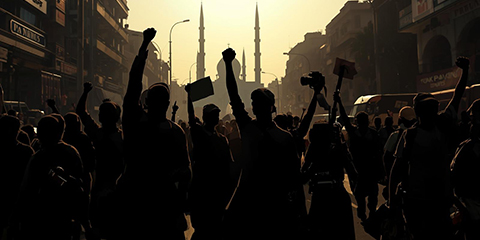Arshad Sharif's widow reveals harrowing details of his torture and murder
JournalismPakistan.com | Published last year | JP Staff Reporter
Join our WhatsApp channel
ISLAMABAD—In a heart-wrenching interview on the Naya Pakistan channel, Javeria Siddiqui, the widow of the late journalist Arshad Sharif revealed shocking details about the torture and murder of her husband. She recounted the chilling threats Sharif received while in Pakistan, warning him that he would be shot in the head.
When Sharif's body was returned from Kenya, the extent of his brutal treatment became horrifyingly clear. According to his widow, the body bore 18 to 19 marks of torture, with visible evidence that he had been shot in the head and from the back. Furthermore, four of his nails were missing, one of his kidneys had been removed, some ribs were broken, and part of his skull was missing. Postmortem stitches were also evident on his body.
Speaking through tears, Sharif's widow expressed her agony, saying, "It would have been better if wives would die before their husbands." She also raised concerns about the location of the brutal acts, uncertain whether the kidney was removed in Kenya or Pakistan, noting that the perpetrators were present in both places.
Sharif was tragically murdered in Kenya nearly two years ago. Last week, a Kenyan High Court judge ordered legal action against the police officers involved in Sharif’s killing and awarded Rs21.67 million to the family. The court's ruling labeled the police firing as a human rights violation and mandated a comprehensive investigation into the circumstances surrounding the journalist's death.

























